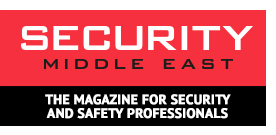15 Feb Middle East workplace survey commissioned by Honeywell
A survey has been commissioned by Honeywell and conducted by Wakefield Research has revealed the measures put in place for workers in the Middle East make them feel safer in the workplace, including enhanced cleaning procedures and new building management technology investment.
The survey of 500 workers across the Middle East is part of Honeywell’s global study of more than 2,000 employees located in the United States, United Kingdom, Germany and the Middle East. It revealed that, as per their counterparts in other areas of the world, Middle East workers are seeking safety reassurances in the form of long-term, safety-focused investments in their workplaces by building operators, rather than only temporary changes in response to COVID-19.
Key findings from the Middle East include:
- Nearly 3 in 5 respondents (59%) believe that building operators are more likely to make short-term changes in response to COVID-19, rather than long-term investments in building systems that could help maximize safety in the future and provide greater returns;
- Approximately one third (31%) want to see their building operators invest in updated air quality systems and touchless door entry technologies;
- Almost half (46%) would welcome health screening technology, such as temperature checks, while 41% believe their workplaces should have enhanced cleaning procedures;
- 18% would like to see new contact tracing technology installed in their place of work.
“Workers are keenly attuned to what’s happening to make their workspaces safer and healthier, especially aspects like air quality and adherence to safety guidelines, issues that previously were likely to have been less of a concern for many,” said George Bou Mitri, vice president and general manager, Honeywell Building Technologies, Middle East, Turkey and Africa.
“Building owners have a responsibility now more than ever to provide safer and healthier working environments. In addition to implementing short-term measures such as social distancing and the wearing of masks, smart investments in building solutions deliver a cost effective way of improving a building’s overall health and performance, and achieving long-term ROI.”
“Our advanced solutions integrate building technologies to support greater wellbeing, confidence and productivity for building occupants and support the region’s governments in their efforts to combat the pandemic. These solutions empower building owners with greater control in improving workspace environments and provide tenants with a sense of comfort and assurance on returning to work,” he concluded.
By integrating air quality, safety and security technologies along with advanced analytics, Honeywell’s Healthy Buildings solutions are designed to help reduce potential risks of contamination and improve business continuity by monitoring both the building environment and building occupants’ behaviors. Honeywell’s Healthy Buildings solutions help building owners improve their building environments, operate more cleanly and safely, comply with social distancing policies, and help reassure occupants.
To view the full report, please visit https://hwll.co/ys6hr.
Methodology
The Honeywell survey was conducted by Wakefield Research (www.wakefieldresearch.com) among 500 workers in buildings of 500+ workers in the Middle East, between November 19th and December 1st, 2020, using an email invitation and an online survey. This was part of a global study that took place in the United States, U.K., Germany and the Middle East. Results of any sample are subject to sampling variation.
The magnitude of the variation is measurable and is affected by the number of interviews and the level of the percentages expressing the results. For the interviews conducted in this particular study, the chances are 95 in 100 that a survey result does not vary, plus or minus, by more than 2.2 percentage points from the result that would be obtained if interviews had been conducted with all persons in the universe represented by the sample.

